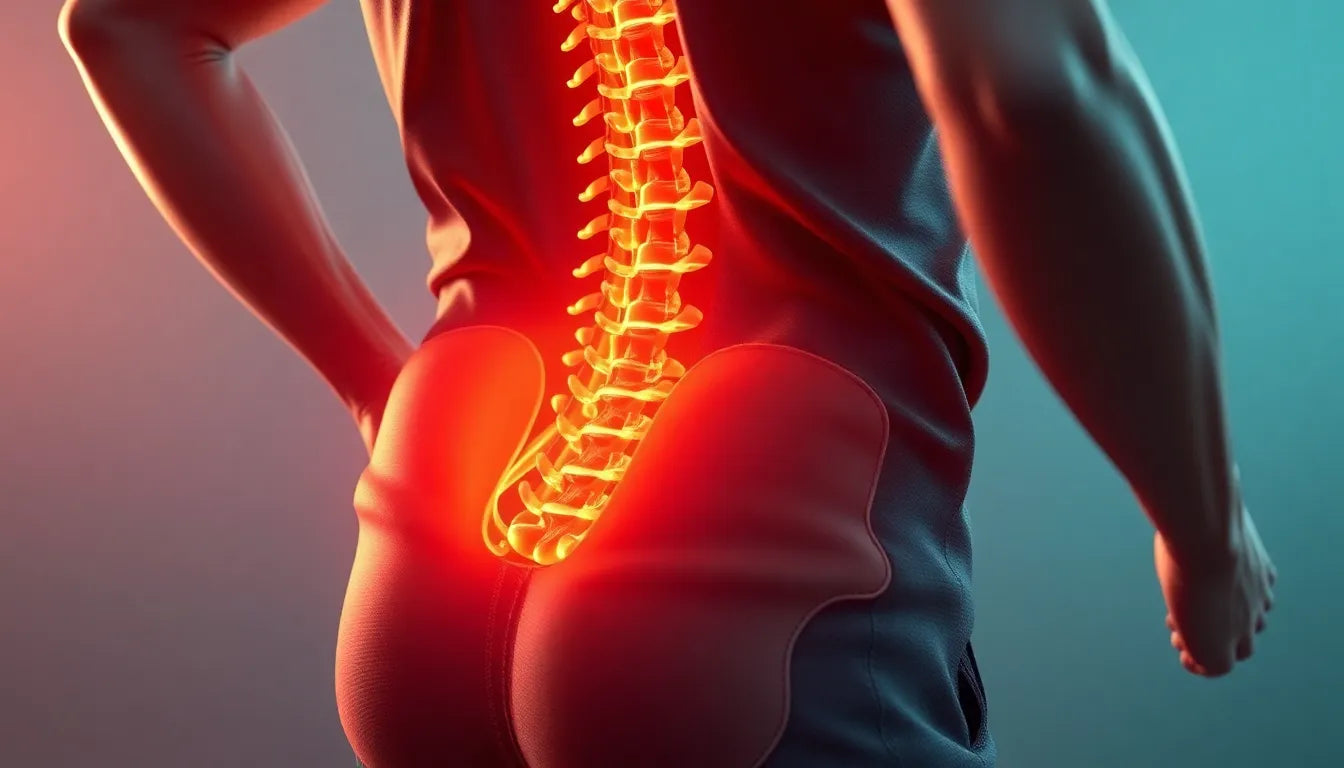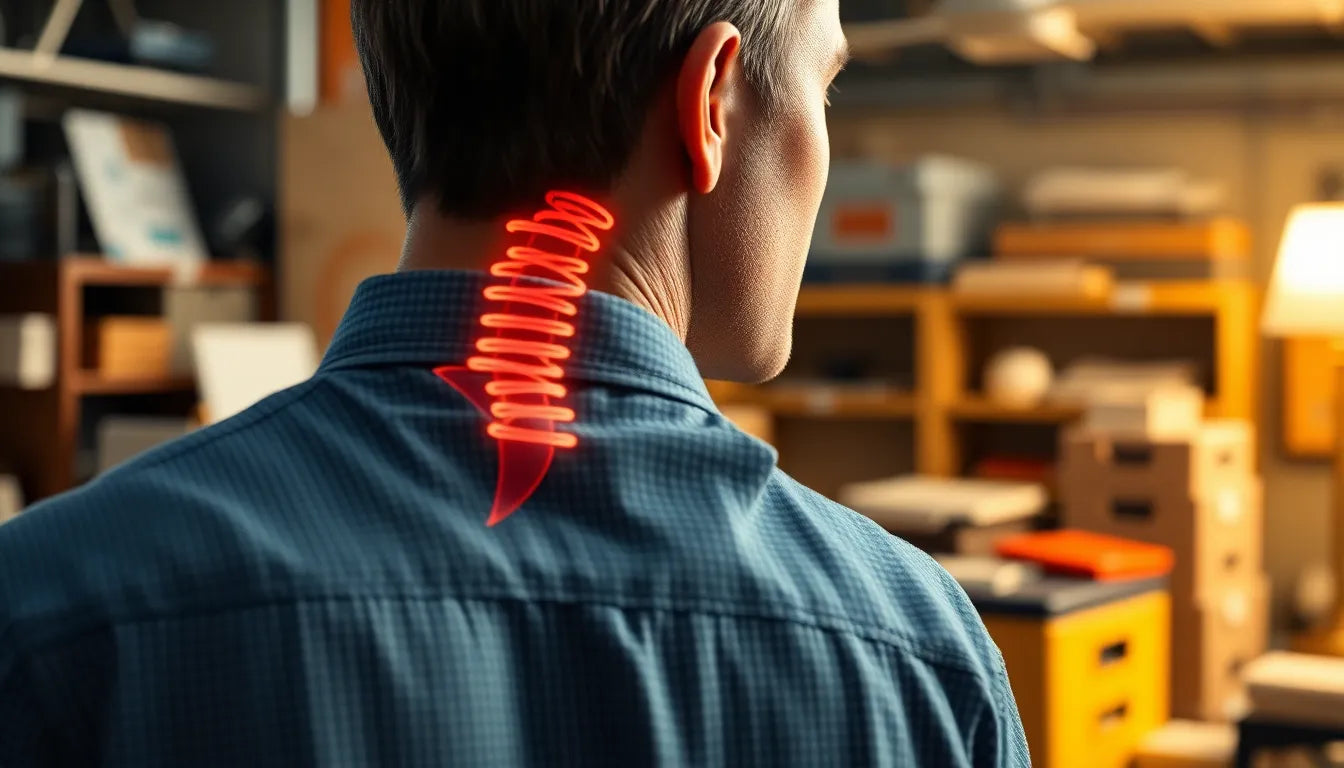A herniated disc is a common spinal condition that occurs when the soft inner gel of a spinal disc pushes through a crack in the tougher exterior casing. This can lead to irritation or compression of the nearby spinal nerves, causing pain and discomfort. While herniated discs can be painful, they are typically manageable with appropriate treatment. However, one of the main concerns for individuals experiencing this condition is the potential for permanent nerve damage.
Permanent nerve damage from a herniated disc is rare, especially when the issue is addressed promptly. Most patients experience significant symptom improvement within weeks to months following the onset of treatment. The key to preventing long-term nerve damage lies in early intervention. When a herniated disc is left untreated, the prolonged compression of nerves can lead to irreversible damage, but this scenario is uncommon with timely medical evaluation and intervention.
the importance of early intervention
Timely medical evaluation and treatment are crucial in managing a herniated disc and preventing long-term complications. Early intervention can significantly reduce the risk of permanent nerve damage. Common symptoms that might indicate a herniated disc include localized pain, numbness, tingling, and weakness in the affected area. If you experience any of these symptoms, it is important to seek medical attention promptly to avoid further complications.
While the timeline for potential nerve damage varies, ongoing nerve compression over weeks or months can increase the risk significantly. However, with early diagnosis and appropriate treatment, the majority of herniated disc cases do not progress to permanent nerve damage. Conservative therapies such as physical therapy, pain management, and lifestyle modifications are often effective in relieving symptoms and promoting recovery.
Understanding the signs and symptoms of a herniated disc and the importance of early treatment can help individuals take proactive steps to manage their condition and prevent long-term damage. By recognizing the symptoms early and seeking medical advice, patients can often avoid the more serious complications that can arise from untreated herniated discs.
risk factors and warning signs for permanent nerve damage
When considering the risk of permanent nerve damage due to a herniated disc, several factors come into play. One of the primary concerns is prolonged nerve compression. If the herniated disc continuously presses on a nerve without relief, it can lead to significant nerve impairment. This is especially true in severe cases where the compression is intense and persistent over time.
Certain symptoms are considered "red flags" that indicate a higher risk of permanent damage. These include severe or worsening numbness or weakness in the limbs, bladder or bowel dysfunction, and loss of sensation in the "saddle" area. Such symptoms require immediate medical attention as they may signify serious conditions like cauda equina syndrome, which necessitates urgent intervention to prevent lasting consequences.
understanding the time frame for potential nerve damage
There is no universally agreed-upon timeline for when a herniated disc might cause permanent nerve damage. However, ongoing compression over weeks to months significantly increases the risk. The longer the nerve is compressed, the more likely it is that the damage could become irreversible. This underscores the importance of early diagnosis and treatment to alleviate pressure on the nerve and promote healing.
Early intervention can dramatically reduce the risk of permanent nerve injury. When treatment begins promptly, many patients experience relief from symptoms within a few weeks, and the likelihood of long-term damage diminishes. Conservative treatments, such as physical therapy, medications, and lifestyle changes, are often effective in managing symptoms and preventing further complications.
general recovery timelines and outcomes
The recovery timeline for a herniated disc varies among individuals, but most patients see improvement in symptoms within 2 to 8 weeks of starting treatment. Pain and tingling are often the first symptoms to improve, while full recovery of sensation may take longer. This gradual improvement is a positive indicator that the nerve is healing and that permanent damage is unlikely.
It's important to note that while some patients may experience a longer recovery period, the majority do not suffer permanent damage when the condition is addressed early. Most individuals recover fully with conservative management, and only a small percentage require surgical intervention.
In conclusion, while the risk of permanent nerve damage from a herniated disc exists, it is relatively low with timely medical care. Recognizing the warning signs and seeking prompt treatment are crucial steps in preventing long-term complications. The prognosis for most patients is favorable, with many experiencing substantial symptom relief and recovery over time.
Healing stages and patient experiences
Recovery from a herniated disc is a journey that varies greatly among individuals. The healing process typically involves several stages, beginning with the reduction of acute pain and progressing toward the restoration of full function. Initially, patients often experience a decrease in pain and tingling, which is a promising sign that the nerve is recovering. Over time, and with appropriate treatment, the affected area regains strength and sensation.
Anecdotal evidence from patients who have successfully recovered from herniated discs underscores the importance of early intervention. For instance, one patient reported that after a few weeks of physical therapy and lifestyle adjustments, they noticed significant improvements in mobility and a decrease in discomfort. Such stories highlight the effectiveness of conservative treatment methods and the body's remarkable ability to heal when given the right support.
Reassurance and hope
While the fear of permanent nerve damage from a herniated disc is understandable, it is important to remember that most cases do not lead to lasting issues. With prompt and appropriate treatment, the prognosis is generally favorable. Conservative therapies, including physical therapy, medications, and lifestyle modifications, can effectively manage symptoms and promote recovery.
The majority of patients recover without long-term effects, and the potential for permanent damage remains low when intervention occurs early. This offers hope and reassurance to those dealing with the discomfort of a herniated disc, as timely medical care can lead to significant symptom relief and a return to normal activities.
Frequently Asked Questions
What are the initial symptoms of a herniated disc?
Initial symptoms often include localized pain, numbness, tingling, and weakness in the limbs. These symptoms result from the disc pressing on nearby nerves, causing discomfort and impaired function.
How quickly should I seek medical attention?
It is crucial to seek medical attention promptly if you experience severe symptoms such as bladder or bowel dysfunction, significant weakness, or loss of sensation in the "saddle" area. These signs could indicate serious conditions requiring urgent care.
Can lifestyle changes aid recovery?
Yes, lifestyle changes can significantly aid recovery. Maintaining a healthy weight, engaging in regular exercise, and using ergonomic aids can support the healing process and prevent further complications.
What treatments are available for herniated discs?
Treatment options for herniated discs include physical therapy, pain management with medications, and, in more severe cases, surgical intervention. The choice of treatment depends on the severity of the symptoms and the patient's overall health.
How can I prevent further disc problems?
Preventing further disc problems involves regular exercise, using proper lifting techniques, and making ergonomic adjustments in daily activities. These measures can help maintain spinal health and reduce the risk of future issues.
Sources
- Spine MD. "Understanding Herniated Discs and Nerve Damage."
- ADR Spine. "Healing Timelines for Herniated Discs."
- Barricaid Blog. "Permanent Nerve Damage from Herniated Discs: What You Need to Know."
- HealthCentral. "Expert Q&A: Recovery from Herniated Discs."
- MoreGoodDays. "Stages of Recovery from Herniated Discs."


















